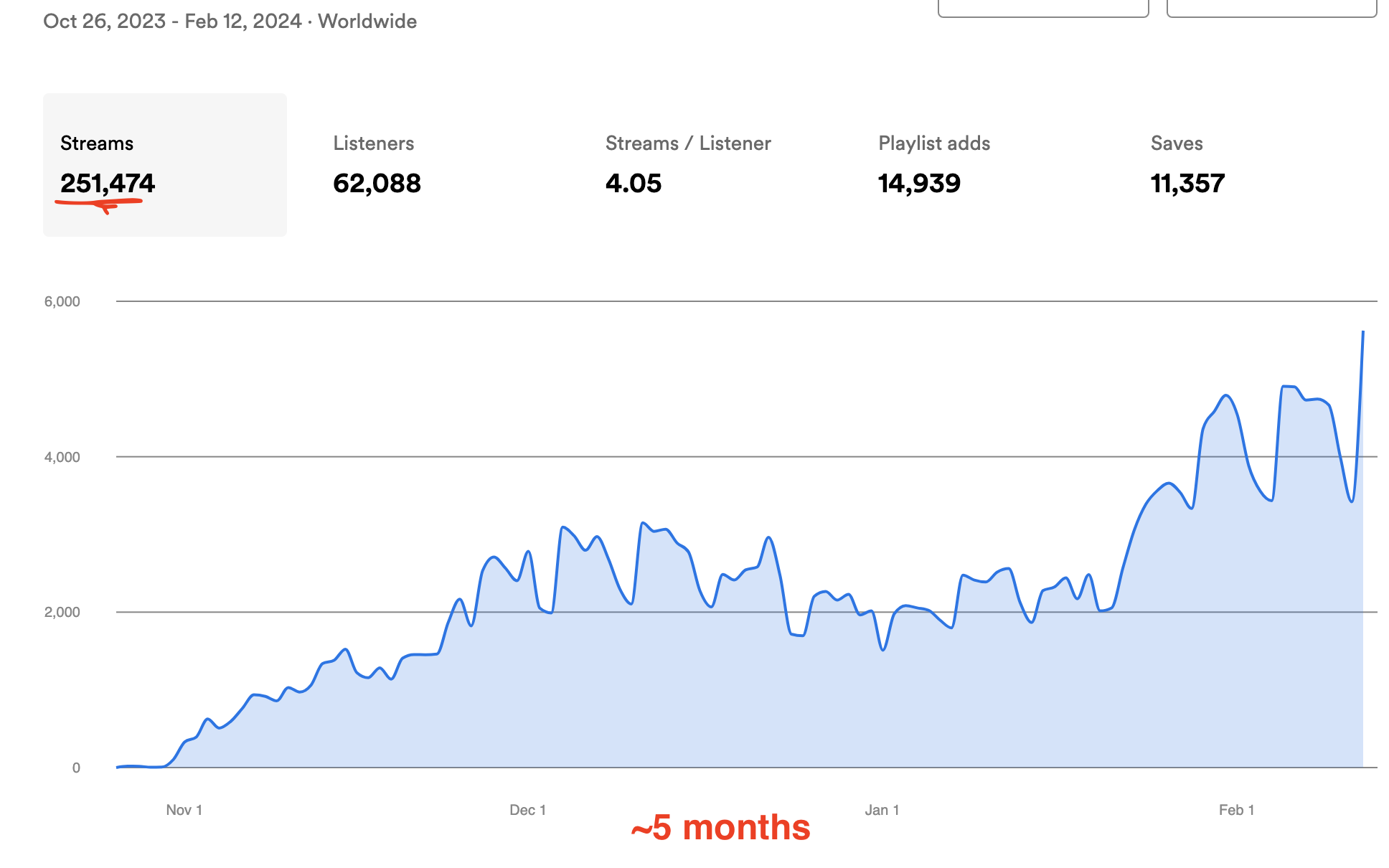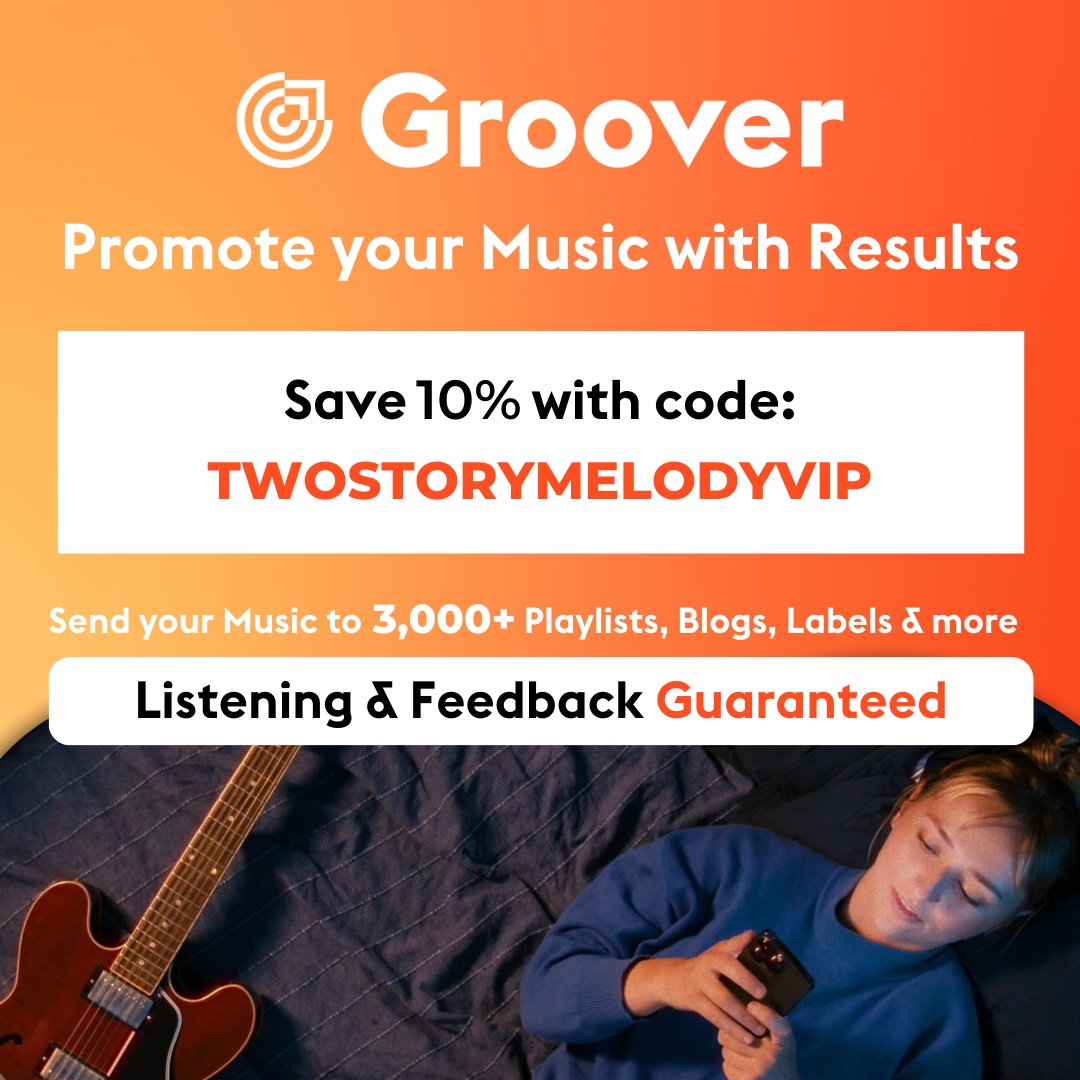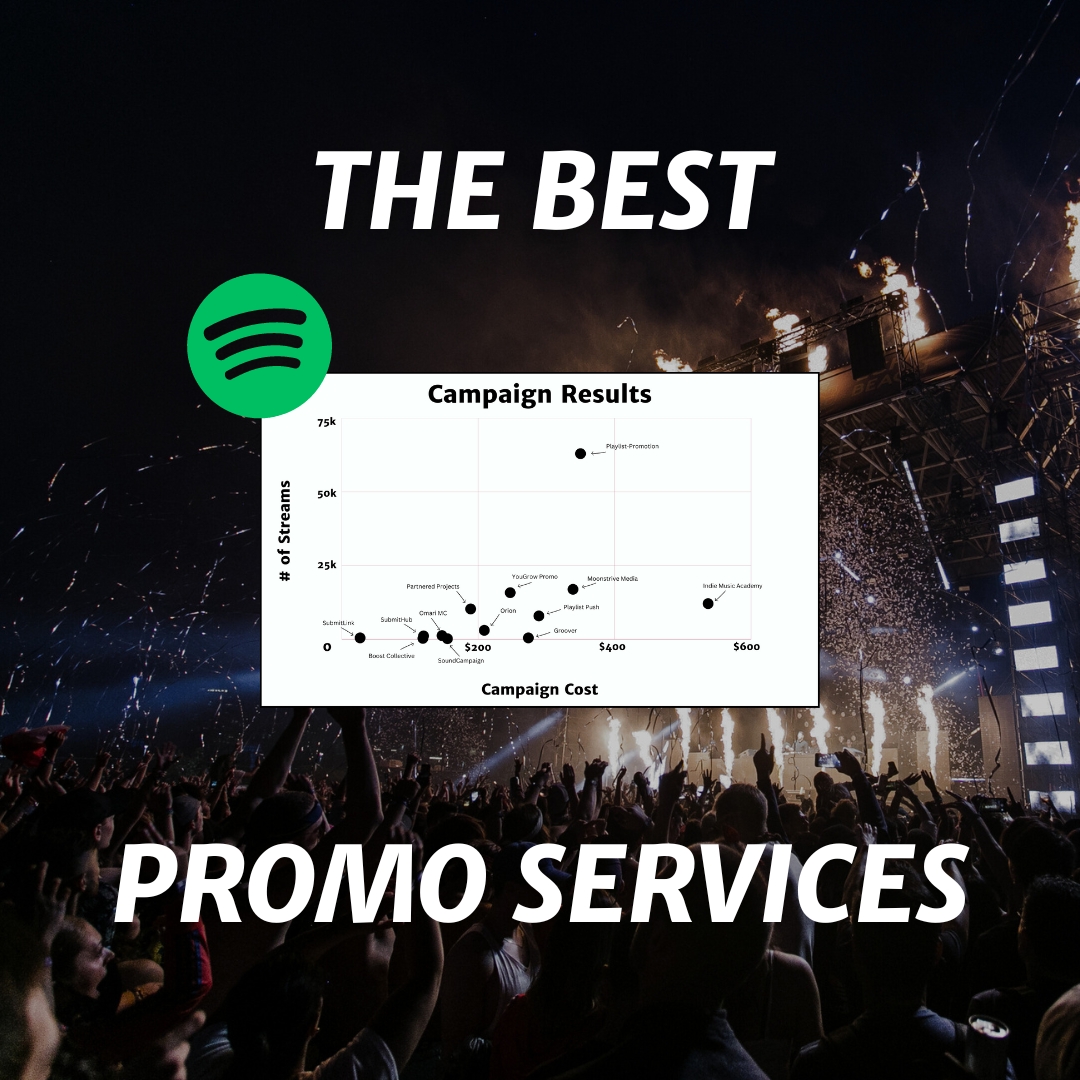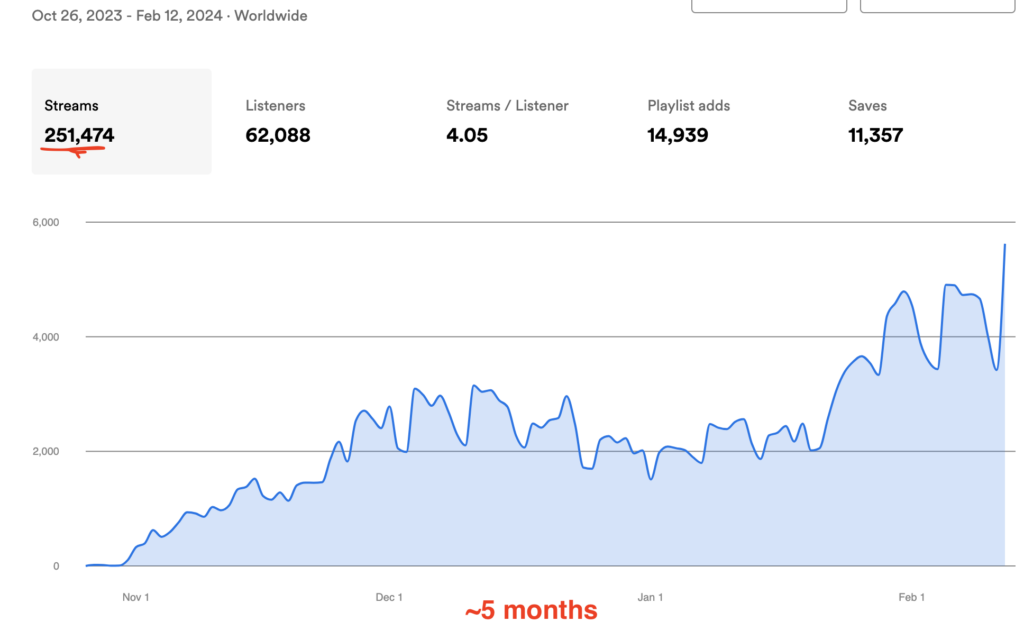Ready for an elevator pitch? Here’s a good one:
Custom songs that capture your personal stories and memories, created by a professional artist and delivered in a few days for only $199. The use cases are almost endless (Send a personalized song for a birthday present! Liven up staff meeting with a customized tune celebrating good work! ) and, for the people whom the songs are about, the first listen is almost always a “wow moment”.
Intriguing, right? That’s what Songfinch is.
(Fun fact: The co-founders wanted to pitch the concept on Shark Tank, but didn’t make the cut because their market was deemed too small / not lucrative enough. 20,000+ songs and tens of millions in revenue later, it turns out that wasn’t true.)
In my opinion, the consumer-facing side of Songfinch is a pretty easy sell. But to make the business model work, the company also needs a community of artists to actually write and record the songs that their customers request.
And that begs the question: Is joining Songfinch worth it for artists?
I had the chance to talk with Rob Lindquist, the COO and co-founder of the company. Based on our discussion and a bit of digging, here’s my short answer:
If you’re looking for extra income from your music and you have a few hours per week to spend, then it probably is.
There’s nuance to this, of course (keep reading for the details), but I came away from my conversation with Rob convinced that even if Songfinch doesn’t make sense for every artist, it probably does make sense for a lot of artists. To unpack why, let’s walk through what it looks like to work with Songfinch from the artist side.
Here’s a quick overview of what you can expect.
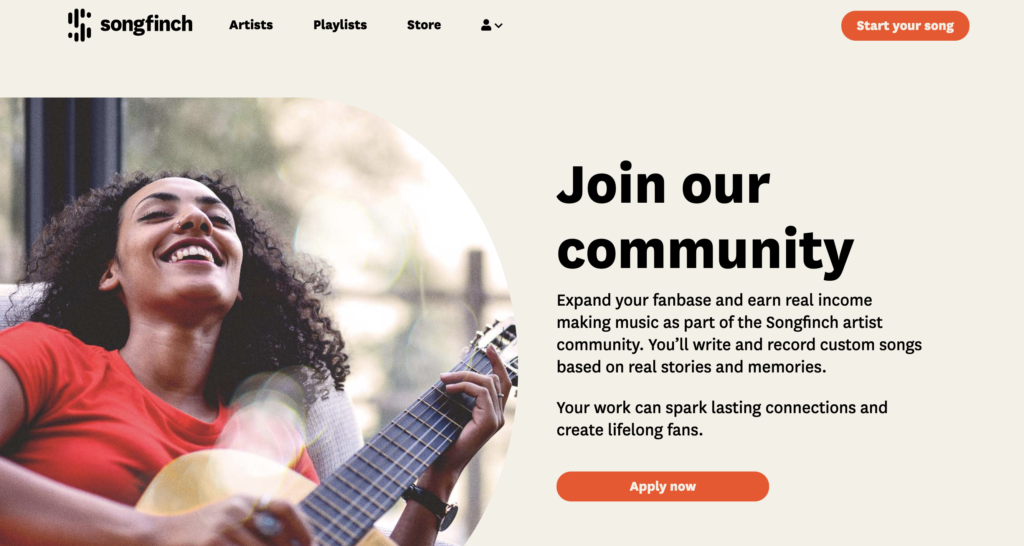
1. You apply for acceptance to Songfinch’s “Artist Community”.
First, it’s not guaranteed that you can work with Songfinch, even if you want to. To become a part Songfinch’s Artist Community, you have to apply through a process that’s relatively stringent. Rob estimates that around 40-50% of artists who apply get accepted; the flip side of that means most applicants get rejected.
This makes sense. Songfinch’s success depends on the community’s ability to produce quality songs, so they aren’t offering charitable support for acts that don’t quite cut it.
When you apply, you’ll be given a prompt and asked to deliver an original “test” song that you’ve written, recorded, and produced yourself.
Rob notes that publicly released songs often aren’t indicative of artists’ skills in self-production, which is why they don’t allow you to lean on your existing catalogue of music.
That brings up another thing worth noting: You don’t have to be Max Martin, but you do have to be able to record and produce your own songs to the point that the final mix, as Songfinch puts it, “does not distract from the listening experience.”
So, Songfinch is only a good fit for artists that do everything – songwriting, instrumentation, singing, and audio engineering / production.
2. You receive opportunities (prompts) to write songs for people.
Once you’re accepted into the Songfinch Artist Community, you’re eligible for song opportunities.
Songfinch controls the distribution of song requests, meaning that they specifically select the artist they feel is the best fit for each prompt. If you’re the artist that gets selected, you can confirm that you’ll take the opportunity and write the song. Or you can pass – although it’s recommended that, if you aren’t available to write for a given period of time, you mark your profile as inactive so you don’t slow down the system.
The closely managed distribution of opportunities is one of the things that sets Songfinch’s product apart.
Some of the company’s competitors use what Rob calls an “up-for-grabs model,” meaning that any artist in the system can bid on any opportunity. The problem with that model, Rob explains, is that the customer isn’t guaranteed to get the ideal artist for their song (which he calls “a potential disaster”).
The outcome of this, for artists, is that you’ll only get opportunities that the Songfinch team feels are a good fit for your skillset. While artists can write in multiple genres, the truth is that most artists are best suited in a few styles – so if you’re working in heavy metal, you probably aren’t going to get prompts for soft, singer-songwriter songs.
Rob says that, because of this reality, there are some niche-genre artists in the community that don’t get very many opportunities – but he clarifies that, on average, most artists get about three opportunities per week.
3. You write songs for people.
When you confirm that you’ll take an opportunity, you’ve got to get to work quickly; Songfinch has a 3-7-day turnaround from song submission to delivered song (which is pretty darn quick).
Your prompt will include details from the customer, like specific phrases, words, and ideas to incorporate into the lyrics, and tonal / sound direction. It’s your job as the Songfinch songwriter to craft and record a song that brings everything together.
Honestly, my initial thought on this was: “That would take a long time.” But a) I’m not a professional songwriter, b) the specifics of a prompt might speed things up, and c) Songfinch does allow artists to reuse production elements in multiple songs (so, if you have an upbeat acoustic instrumental track that would fit a birthday song, you can use it multiple times as long as you create original lyrics for every project).
Rob reports that most artists take three or four hours to complete a song. You’re paid $100 per standard song, but 50% of orders add a third verse, which increases the artist’s pay to $140. And, on top of either sum, 20% of orders receive artist gratuity.
So, if you can create a song in four hours, you’re making between $25 and $35 per hour, plus tips.
That’s not incredibly lucrative, but it’s also not bad, especially if your alternative employment while you’re trying to make it is working at Olive Garden. You probably won’t become a millionaire at either establishment, but at least at Songfinch, you’ll get to hone your craft.
4. You get hands-on feedback from Songfinch’s team.
One cool thing that artists get when they sign up for Songfinch is access to hands-on support from professional audio engineers and producers.
You’ll get specific tips on how to record, mix, and produce your songs so that they sound more professional. I’ve paid for this kind of material before, so getting it for free is a legitimate benefit.
It’s also worth noting that, while they want to ensure song quality, Songfinch also seems to really have their artists’ backs.
Basically, once you’ve been approved into the Artist Community, Songfinch assumes responsibility for the work you do (although you maintain all the rights to your songs). If a customer doesn’t like the song you made, you don’t have to refund them – Songfinch will take care of it. Once you’ve submitted a song, you’re pretty much done. You only have to provide revisions if you missed something in the original prompt.
Rob says that the platform has a 99% satisfaction rate and a 94% success rate with no revisions – meaning nearly everyone who requests a song is satisfied with their result. That’s pretty crazy, and it makes life easier for artists.
5. You make money and build relationships.
Okay, here’s the crux of the value proposition Songfinch offers to artists: When you join, you get the chance to develop a dependable income stream from your music and you get the chance to build meaningful relationships with potential fans.
I was skeptical on the second part of that. Rob asked me how I would approach the Songfinch platform as an artist, and my first response was that I’d be interested in it, but that I wouldn’t want it to be associated with my public artist persona. Maybe it’s some misguided form of pride, but to me, something about having a public songwriting side gig felt like it would delegitimize my music.
Rob countered with this: The majority of artists on Songfinch don’t separate their profile from their public persona, and, as a result, they’re actually able to use Songfinch to develop deep fan relationships.
And, on second consideration, it makes sense. If you request a custom song for your wedding and you end up loving it, you’ll probably feel attached to the artist who made it – and maybe you’ll even become a long-term fan. There’s definitely the potential for a deep relationship there, and that’s a cool thing.
The bottom line:
From my vantage point, Songfinch is a pretty solid idea. It’s undeniably appealing on the consumer side of things. And, for artists, it offers a viable way to monetize meaningful art.
If you work in a mainstream-ish genre, can self-produce your music, and write songs fairly quickly, Songfinch is worth checking out.
If you’re interested, you can apply to join their Artist Community here.
And regardless, here’s wishing you the best as you write beautiful music.


